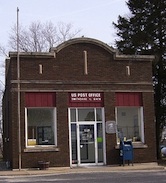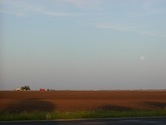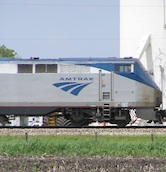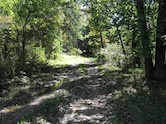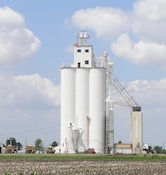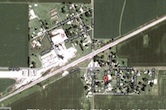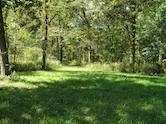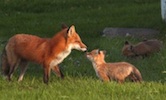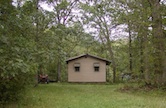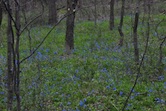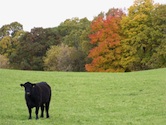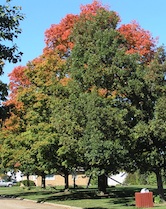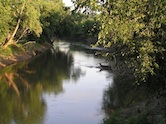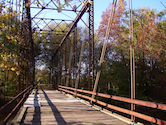Gathering Ground
The Land Remembers
Swirling light fog moonlight reflecting, revealing then masking ground, trees, and sky, so quiet time flowed to stillness. I followed the boy as he also flowed through the space as if in unity with the inseparable stillness. He paused or rather I became conscious I was not moving, as the swirling environment made me feel motion even in stillness. Eventually the fog dissipated as it grew thin we moved again coming back to our parked truck. I was reluctant to break the moment. Silently I followed the boy, he got in. I cranked then got behind the wheel. I paused watching my boy waiting for him, he looked very placid, spoke softly, “in the morning we need to go see that man, the one at the mill.” He returned to silence and I knew there was no more to be said; I drove back to our camp careful not to break the silence.

James Keefe photo
Edgar: “Hello Sam, I should say Mucktypoke.“
Mucktypoke: “Sam’s OK your pronunciation isn’t even up to white man standards.”
Edgar: “Not much with words; can’t pronounce many white men’s names either, unless they’re Smith, Brown, or Thomas. This your son?”
Mucktypoke: “Yes, Wabb-shkum, or Wabi.”
Edgar: “Honored to meet you, Wabi. Are you eight, now?”
Wabi: “I’m nine. I came to hear the stories of your people.”
Mucktypoke: “He’s nearly run me dry on stories. We were on the grounds last night. After we left, he said he needed to come see you.”
Edgar: “What stories do you want to hear?
Wabi: “Your family story when your family first came here to our land.”
Edgar: “Well Wabi, Greely was my great grandfather he started a trading post right over there, where the store is now. When he came there were few white men, and your people had a village pretty much where Pottown is now. Greely picked this spot because of the spring and the stream. He and his son Ellsworth built the mill, but that was later. He had brought along a partner Levi who helped build the cabin and store. After three years he felt established enough to go and bring his wife Aletha and now almost three-year-old son, Ellsworth, from out East. After bringing his family your people showed more trust of him. Greely got help from village men to build the mill. The mill added to the economy for the native village and New Harmony. Their settlement is about eight miles from here. Both white and native farmers benefitted from the income the mill added to their corn and grains. The mill combined with the store made Greely and our family prosperous for the time. My family has been here farming and scraping together a living ever since.
Wabi: “I want to hear about what your government called the ‘expulsion’.”
Grist Mill
Edgar: “Yes the ugly times, I don’t know what to say, really”
Mucktypoke: “No story has meaning if it hides truth.”
Wabi: “All stories hide truth, but the past is only our stories. Let me hear your story, your family’s story”
Edgar: “Ok Wabi, Greely got on well with the village and they him; from the time he first came until the ‘expulsion’ it was about 25 years. As more whites came a territory governor was appointed. He was an old Indian fighter and the new arrivals insisted all natives be removed, sent West. Eventually those in control of the law in Washington used it to order removal by military force if required. Your people were forced to leave.”
Wabi: “What did Greely and Ellsworth do, did they want to drive us out?”
Edgar: “Once the village saved Greely, Aletha, and then three children. A warring band seeking revenge after the Ohio wars came through here. My family would have all died if not for your people. Greely and Ellsworth, as he got some age, had a good trading relationship with the village. No they always said it was nothing but fear and greed of the new settlers that made them use the law to drive you away.
Wabi: “What did New Harmony people do?”
Edgar: “The first settlers had experienced ‘mother’s justice’ as it was called. When New Harmony wasn’t much there was a brawl between natives and settlers. Youthful bravado got out of hand, and two boys were killed one settler, one native. Emotions were hot, everyone was afraid. In order to prevent continuing vengeance a makeshift trial was convened. A jury of six New Harmony men and six Native men with Judge Samuels presiding, who Ellsworth said was really just a man with a law book. The mothers of the two dead boys appeared and appealed for peace, a decision to bring New Harmony as the town’s name promised. It became less a trial and more a treaty negotiation. They agreed that all young men would go into a work camp to dig through a rock ridge. This would make a canal possible to float cargo around the rock shoals below New Harmony. A canal was a long dreamed improvement by New Harmony settlers. Both villages would share in revenue from the canal when done. It was agreed they would stay at it for up to six weeks. Some good people were put in charge.
Canal Sunrise
Food and water were organized. Ellsworth brought spring water twice a
day with a team. He was too young to use a pick and shovel. A respect
was earned and a bond was formed. The first settlers always got on
better with the Natives than the newcomers. This trial resulted in
legal agreements that were eventually recorded off at the territorial
capital. When the expulsion was first enacted Judge Samuels now
accepted as a real lawyer filed appeals. Concessions were made but
your people were forced west to a reservation to live with other
nations. One concession was the right to return for an annual ceremony
in a designated public area lasting no more than two weeks. The other
was a promise to leave your ceremonial grounds alone. The last was
your people were given three years to complete your move. After that
your land titles and any real property left behind would be auctioned
off to the highest bidder. Each winter and summer Ellsworth and others
of the old settlers helped transport the village to the reservation.
It was threatened that any native without legal status of marriage to
a white citizen or a descendant would be arrested held subject to
execution if not west of the Mississippi on January 1. Pottown has
tried to turn the annual return ceremony into something of a tourist
draw, they don’t have much else.“
Wabi: “Why were the grounds disturbed? Do you own them now?
Edgar: “What I call the temple is as it was, but the gathering ground was torn up by old Kennard. At least I called him that Ellsworth called him Kenny since he was Kennard Jr. Ellsworth took me in the wagon to get sacks of grain from Old Kennard. I was just old enough to push sacks to the front of the wagon after Ellsworth and Kennard pitched them on. It is a long trip by the roads. Most of what I know Ellsworth told me on that trip. There is a ridge and gullies that separate the temple and the gathering ground from the mill here and from Kennard’s place. The elder Kennard always claimed he owned the gathering ground, but people doubted him. His son seemed obsessed by it. His mind dwelt on this rather insignificant area. It was difficult to get to, not much of a field. Old Kennard was a real miser. When I went over there he was living alone in the original cabin stuck to the house as a lean-to. His wife had died all his kids left. None ever came back not even for a funeral. Ellsworth said the only thing Kenny ever wasted money on was lawyers and courts getting title to the gathering ground. He wasted a couple years effort trying to make a field of it, but after dry seasons and the difficulty getting to it, he gave it up. Old Kennard did vigorously deny anyone access to ‘his land’ waving a shotgun as warning. His lawsuit resulted in a new abstract being made. Ellsworth was informed he could file claim to the temple. It would be added to his title or it would be sold off. Ellsworth filed. It remains as it was, accessed only by the trail that starts over there. In the last few months Old Kennard’s land was placed on the market. It had been managed by some bank trust for many years. As of about a month ago my family owns Kennard’s place. My grandson is going to live there and farm it. Yes I guess we now own the gathering ground.”
Wabi: “Now I understand the people’s vision, yes you must move the house down by the road, leave the cabin. The vision was so clear, feeling so intense, and you your face again and again. It must be.”
Mucktypoke: “Now Wabi I sense your soul as a seer, but Edgar will be fair. You can’t go ordering him. He gave me permission to drive up there last night”
Edgar: “No Sam there is something special about this boy. Tell me Wabi, describe your vision.”
Wabi: “I see the house down by the road there is joy, family, love. It came over and over I could feel the sun, smell the good smells, and feel love. When the vision of the house where it is, returned it is cold, frightening, it felt wrong. Then you as I traveled your face, hands, giving me a cake when I was 5 on my first visit to the trail. Images come and go with just a cabin and no house. Sounds lights emotions all swirling, back and forth the house, the cabin, then the house, and then you over and over. Most I cannot describe, but those images, the vision is clear. The People have shown me.”
Edgar: “The people have shown you, what people, where are these people?”
Wabi: “The land connects to my People all the People, the land remembers it allows me to see.”
Edgar: “You are a little intimidating for a nine year old. OK the house could be moved there is a good well; it could go down by the road. There are a couple of buildings. It would cost more now, but in a few years electricity and phones will be coming. It will cost less if the house is not so far from the road. Wouldn’t leverage us too much more, could make it work. It would have to occur this summer and then in the winter when it is dry or frozen, when we are not so busy in the fields. That lean-to & cabin isn’t worth moving making your second image a reality would only be sensible. You’re not five anymore, but I could find a cake. Would that suit the people?”
Wabi: “I will go back to listen. I believe it will. I would like a cake, they are so good.”
Everyone laughed. ...
Forgottonia
is a place where you can endlessly wander the lonely roads, and
never once miss the fast lane. The name Forgottonia captures an
image of a region, off the beaten path, which is very true of
Western Illinois.





